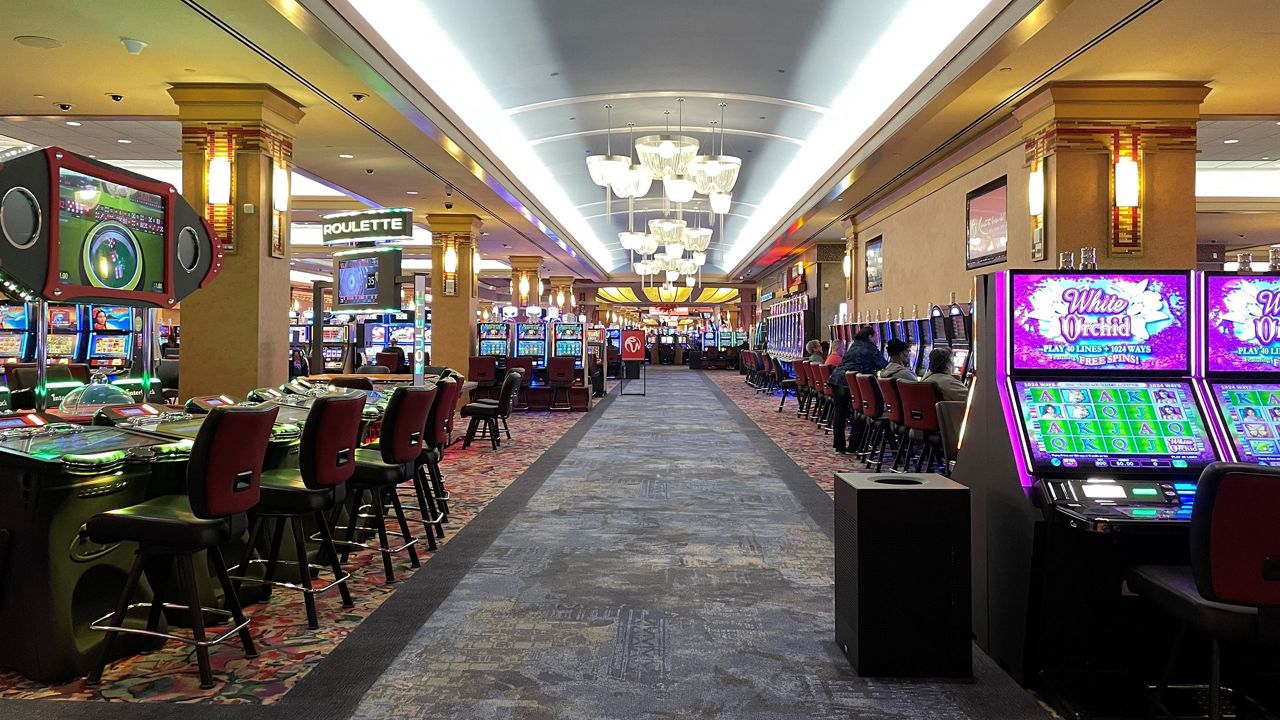Casino games have long been a engaging form of entertainment, drawing countless of players from varied cultures around the globe. From the glitzy casinos of Las Vegas to the busy gambling halls of the Cotai Strip, these games serve as a common thread that unites people across various backgrounds. The allure of chance, tactics, and risk entices not only those hoping to gamble for profit but also those seeking a shared experience.
The significance of casino games extends significantly past the gaming floor. They often embody the social norms and beliefs of the communities in which they prosper. Games such as seven-card stud, blackjack, and roulette have woven themselves into the tapestry of cultural phenomena, influencing everything from films to style. As we explore this captivating intersection of luck and life, we can better understand how casino games shape and are shaped by the world around us.
Chronological Development of Gaming Games
The origins of gambling games can be traced back to ancient civilizations, where betting in multiple forms was extensively engaged in. In China, around 2300 BC, a variant of gambling known as Keno was popular, while in ancient Rome, soldiers would regularly gamble on the consequences of their matches. The notion of using chance for entertainment and gain evolved over the years, leading to the creation of more formal games. By the final Middle Ages, betting houses initiated to surface in Europe, especially in Italy, which introduced early versions of popular games still practiced today.
As betting increased fame in European regions, the 17th and 18th centuries saw the rise of casinos as exclusive venues for gaming. The initial official gambling house, the Ridotto, was founded in Venice in the year 1638, featuring activities like the game of Baccarat and Faro. This time marked a major turning point, as gaming venues started to attract not just the wealthy but also the growing middle class. The refinement of activities evolved, leading to the introduction of new regulations and versions that improved the experience of players.
In the 19th century, the industrial revolution and changes in social conventions further transformed the landscape of casino activities. Gacam888 The arrival of roulette and contemporary gaming machines attracted a more diverse crowd, and casinos became seen as acceptable recreation. This era witnessed the international spread of gambling, as gambling houses expanded from European nations to the New World, culminating in the establishment of the legendary Las Vegas Boulevard in the 1900s. The development of gaming games has continued into the present day, incorporating modern technology and digital sites, rendering them accessible to a global audience.
# Cultural Importance across Diverse Communities
Gambling games have profound cultural significance across numerous societies around the world. In Las Vegas, the very essence of the city is woven around casinos, where gaming is not just a hobby but a fundamental aspect of leisure and social interaction. The vivid lights and dynamic atmosphere attract a vast audience, showcasing how casino games can influence local economies and cultural identities. This surrounding transforms the notion of recreation into an immersive experience that affects style, sound, and even cinema.
In contrast, some cultures approach wagering with greater care, viewing it through the lens of ethical beliefs and heritage. For example, in numerous Oriental communities, games like Mahjongg and Pai Gow are steeped in history and carry significant social relevance. These games are often played during meetings and occasions, fostering community bonds and solidifying family ties. The act of participating in these games goes above mere amusement, reflecting values such as deference to seniors and the importance of collective enjoyment.
Simultaneously, in European countries such as Monaco and Italy, gambling activities serve as symbols of luxury and sophistication. The refined atmosphere of these venues attracts both visitors and residents, maintaining a sense of status and rarity. The art of the game of poker and the strategic elements of games like baccarat are celebrated, molding interpersonal interactions and cultivating an attraction that enthralls a heterogeneous audience. This highlights how casino games can concurrently mirror and shape societal views towards danger, reward, and relationship building.
Financial Influence and Tourism
Gambling activities play a important role in the financial context of many regions, particularly those that depend significantly on tourism. The revenue generated from casino operations fuels local economies, creating employment opportunities not only within the casinos but also but also in related sectors such as hotel management, dining, and recreation. This surge of tourists, drawn by the attraction of games and the overall casino experience, stimulates spending across multiple local enterprises, contributing to the economic vitality of the region.
The presence of casinos often leads to the development of facilities, including lodging, transportation systems, and leisure amenities. These developments are essential in improving the overall tourist experience, making destinations more appealing to visitors. Additionally, many casinos contribute in local communities through support of activities and philanthropic initiatives, further integrating themselves into the social fabric of the locality. Such contribution not only supports economic growth but also cultivates a positive reputation of the casino industry.
Furthermore, the worldwide appeal of casino games drives competitive tourism, with regions vying to attract gamblers from around the world. Iconic locations like Las Vegas and Macau have become synonymous with casino culture, drawing millions annually. This advantage encourages innovation and diversification within the gambling sector, influencing trends in entertainment and accommodation that extend beyond their borders. The consequences of this visitor influx extend wide, impacting local financial health and cultural interactions on a worldwide scale.

